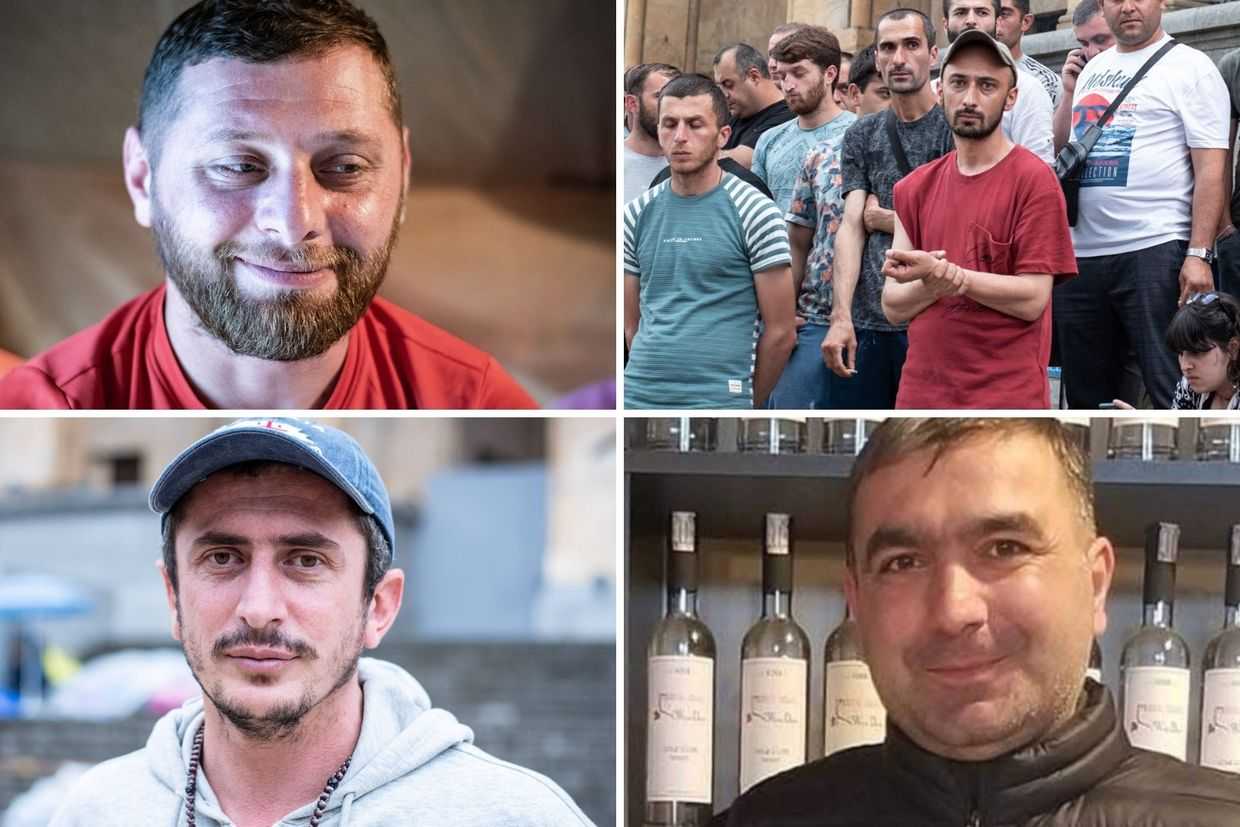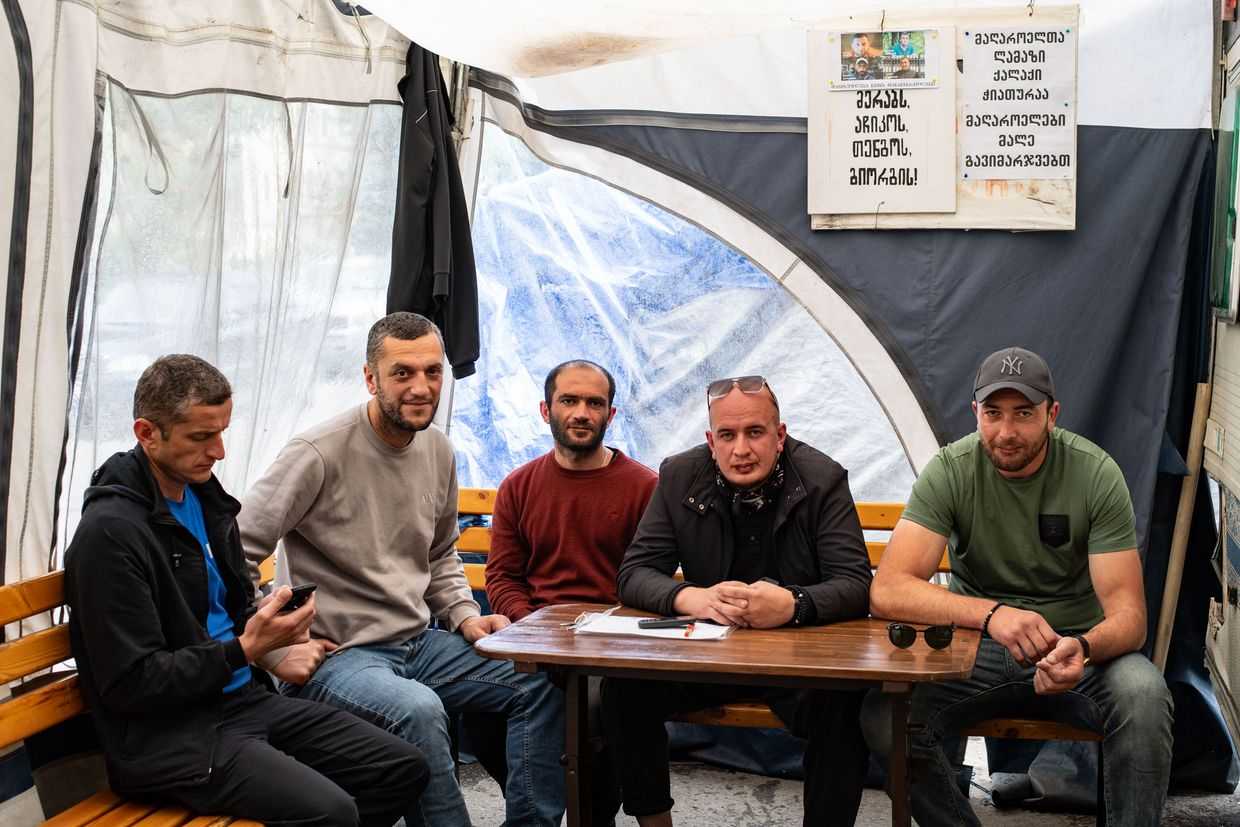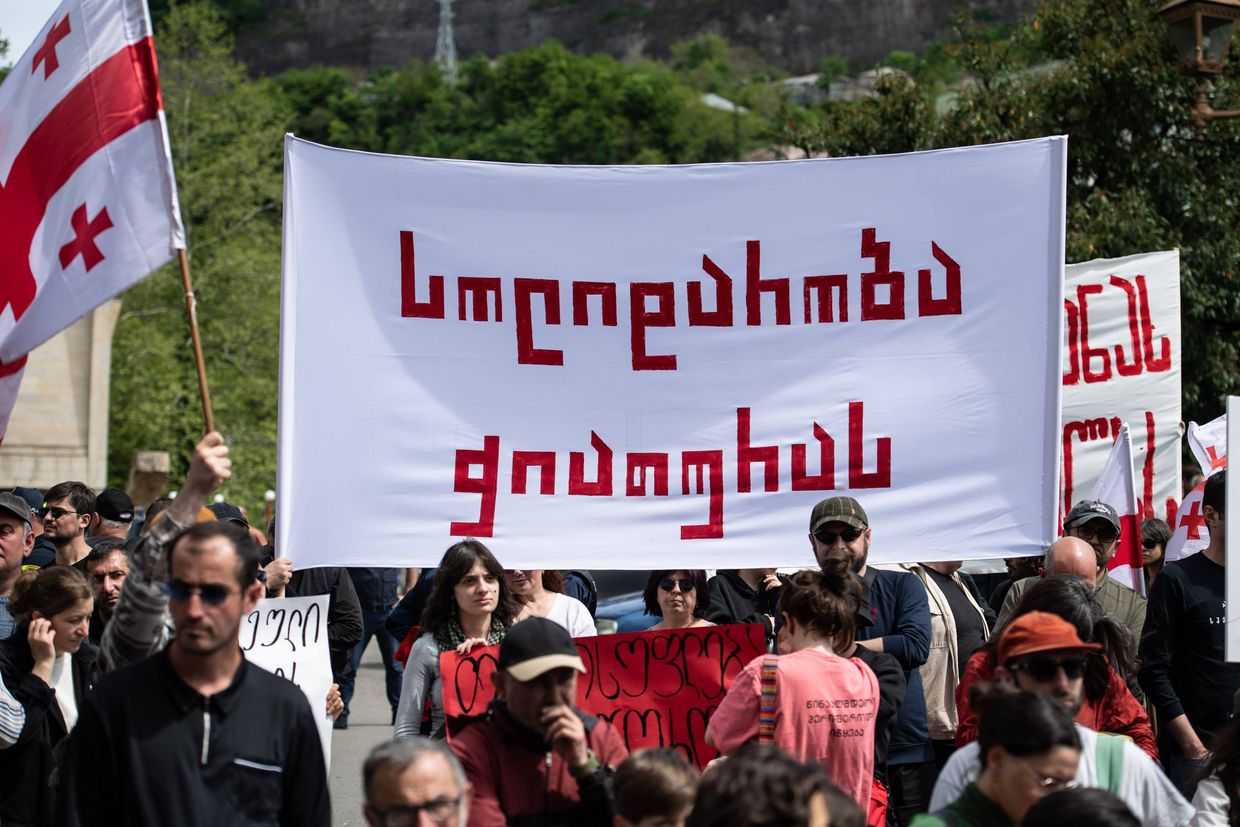
Mining company Georgian Manganese has struck a deal with residents of Shukruti to bring an end to their hunger strike after 30 days.
Residents of Shukruti, a village near Chiatura which sits above active mining tunnels, have been protesting on and off for almost two years over the collapse of houses in the village due to mining.
The agreement was reached on Wednesday night after three days of negotiations. While the terms remain confidential, several of the protesters told OC Media that they are satisfied with the outcome.
[Read more on OC Media: In pictures | Lips sewn shut in Chiatura’s sinking village]
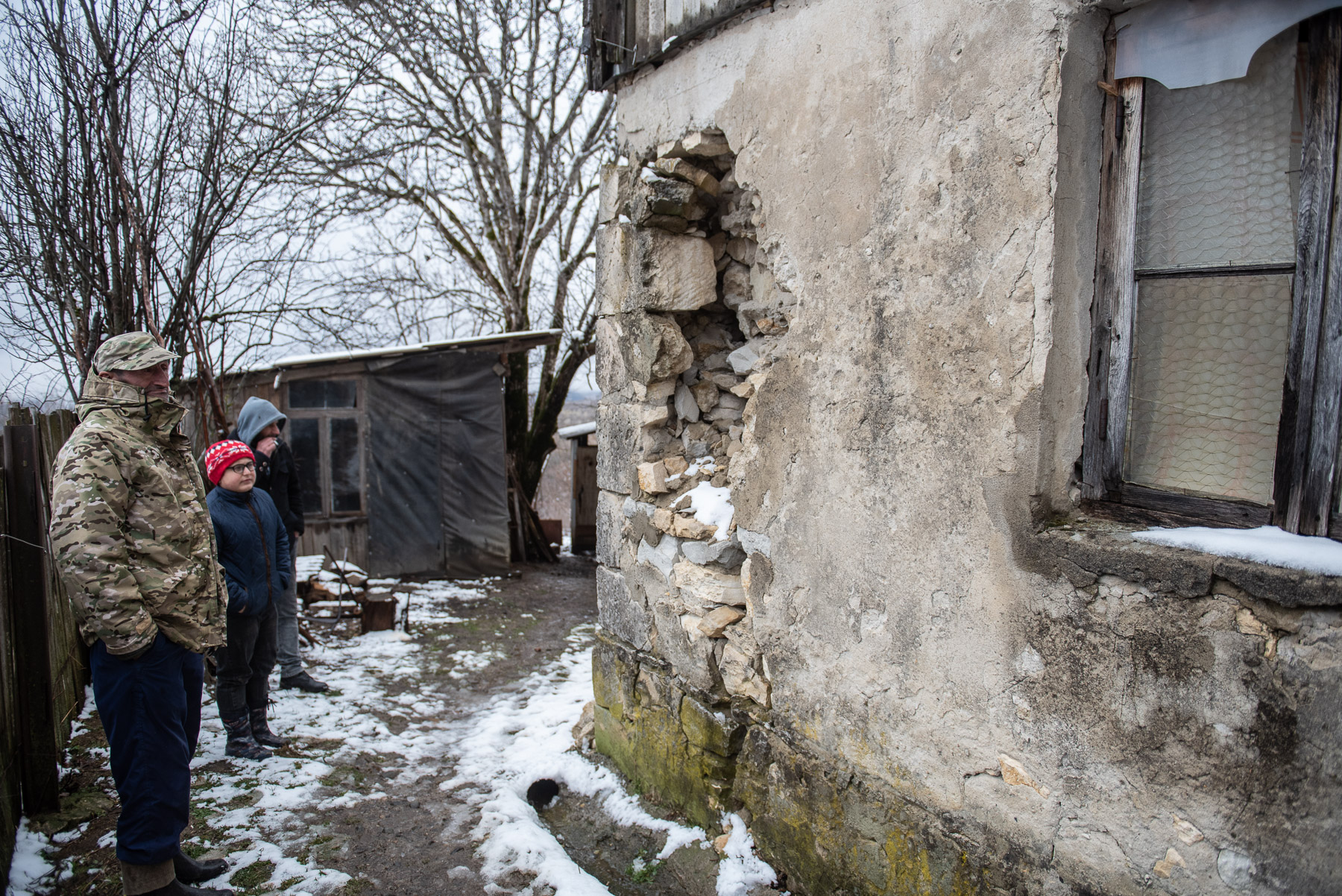
Giorgi Neparidze, who sew closed his mouth on 10 May and stopped taking liquids on 4 June, said that the Samkharauli National Forensic Bureau would assess the damage to their houses which the company would compensate.
Georgian Manganese issued a statement on Thursday morning stating that individual agreements had been signed by the company, Nikoloz Chikovani, the special manager of Georgian Manganese, and the protest participants.
‘All participants of the protest agreed to the company’s offer’, the statement reads.
Unresolved threats and blackmail attempts
The deal brings an end to almost two years of protests and pleas from residents of Shukruti, who first began to speak out on the issue in September 2019. Protests were several times paused after residents said they had received verbal promises from Georgian Manganese to resolve the issue which later came to nothing.
Residents of Shukruti had long asked the government to intervene to help resolve the issue. On 30 May, protesters on hunger strike arrived in Tbilisi to continue their strike in front of the US Embassy in the hopes of gaining the government’s attention.
On Tuesday, a day before the agreement was reached, Khatia Tsilosani, the deputy chair of parliament’s Environmental Protection Committee, appeared to take credit for a breakthrough saying that the issue had been resolved. She said that the government had reacted ‘immediately’ when the hunger strike started and had been in touch with all parties of the dispute.
The protesters, however, said that the government had not played any role in resolving the dispute and that not a single government representative had met or spoken with them since they resumed protests in February.
Since the protests began, protest leaders have also claimed to have been repeatedly threatened, blackmailed, and offered bribes in order to end the protests.
On 1 June, OC Media revealed that Shukruti resident Vera Kupatadze had been threatened with the release of intimate footage of a family member by an unknown man.
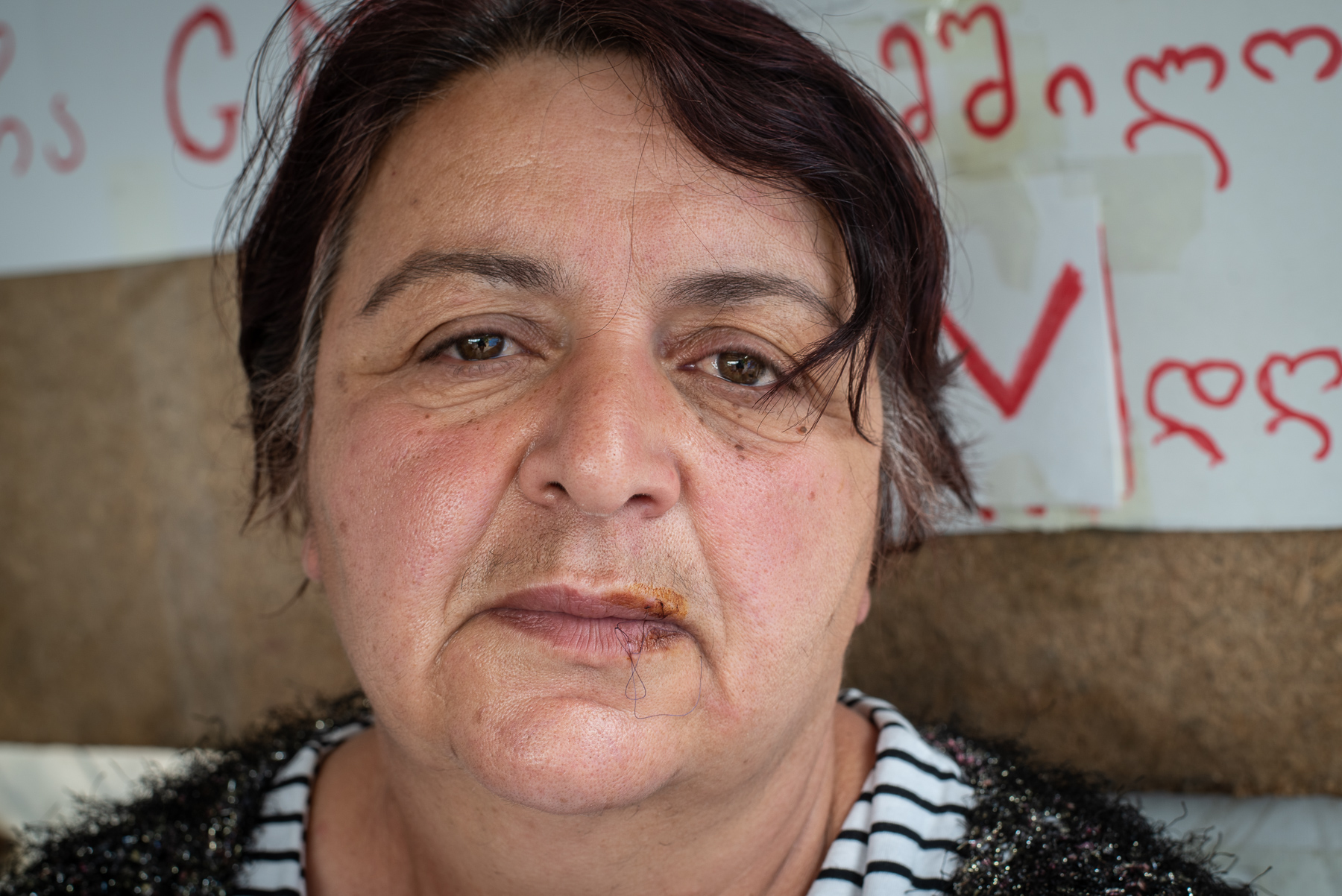
Giorgi Neparidze said that since they restarted protests, both company representatives and police officers had told him that drugs and weapons would be planted on him leading to a long jail sentence if he did not stop.
Sources present during the negotiations told OC Media that Temur Khonelia, a senior manager at Georgian Manganese, had asked that his name be removed from an article on OC Media in which he is accused of personally making threats to Neparidze.
Georgian Manganese did not return our request for comment on this.
[Read more: Shukruti protester ‘blackmailed with sex-tape’]
Tatuli Chubabria, social programme director at the Center for Social Justice, a local human rights organisation, told OC Media that they planned to follow up on the alleged threats and blackmail attempts.
‘We want to continue working on the cases of Mrs [Vera Kupatadze] and Giorgi Neparidze so that these people are under our protection. We have talked to them only once so far and we have not yet started the case’, Chubabria said.
Protesters told OC Media that the Interior Ministry had initially refused to open an investigation into both allegations. Following inquiries by OC Media, the ministry announced that they had began investigating both cases.



